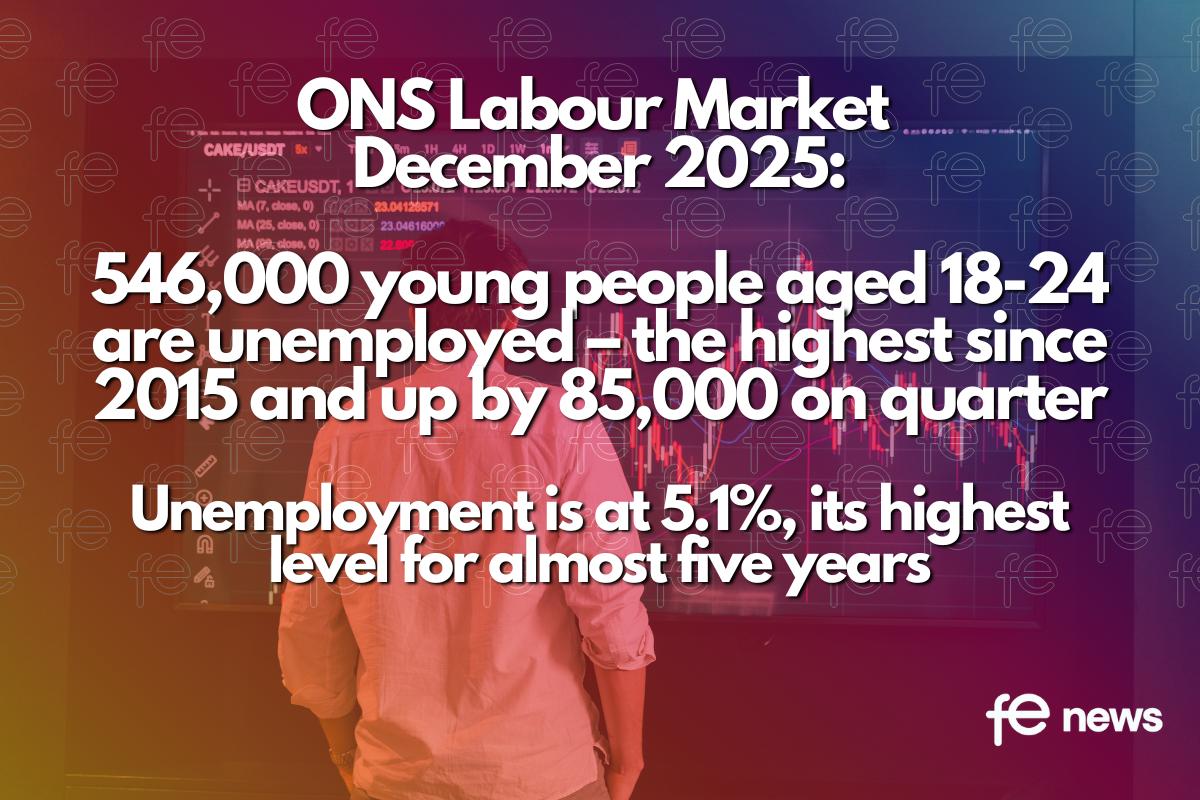£200 million ‘fast track’ for FE Colleges as PM announces transformative school rebuilding programme

@BorisJohnson Announces Major New Investment To Ensure Schools And Colleges Are Fit For The #FutureofEducation
Schools and Colleges across England are set for a transformative ten-year rebuilding programme under radical plans to be set out by the Prime Minister (29 Jun).
Representing the first major rebuilding programme to be launched since 2014, schools will benefit from substantial additional investment. Schools and colleges will also receive funding this year to refurbish buildings in order to continue raising standards across the country.
 Prime Minister Boris Johnson said:
Prime Minister Boris Johnson said:
“All children deserve the best possible start in life – regardless of their background or where they live.
“As we bounce back from the pandemic, it’s important we lay the foundations for a country where everyone has the opportunity to succeed, with our younger generations front and centre of this mission.
“This major new investment will make sure our schools and colleges are fit for the future, with better facilities and brand new buildings so that every child gets a world-class education.”
 Education Secretary Gavin Williamson said:
Education Secretary Gavin Williamson said:
“My number-one focus will always be to make sure every student has access to excellent education and training.
“Replacing and upgrading poor condition school and college buildings with modern, energy efficient designs will give our students and teachers the environment they deserve, and support them to maximise their potential.
“As we look forward to this September and all children returning to school, we can be assured that for years to come this country’s education system will drive opportunity and prosperity for all.”
 Minister for Apprenticeships and Skills Gillian Keegan said:
Minister for Apprenticeships and Skills Gillian Keegan said:
“This investment is fantastic news for colleges and means they can kick start work to refurbish their facilities and equipment from as early as this September.
“The FE sector will play a pivotal role in our economic recovery post-Covid-19, ensuring more people can gain the skills they need to get ahead.
“This is just the start of work to transform the FE sector including making sure students have access to high quality, fit for purpose facilities and are great places to learn. We will set out further details of how this funding will be allocated in due course.”
 Liberal Democrat Education spokesperson Layla Moran said:
Liberal Democrat Education spokesperson Layla Moran said:
“This is spin over substance. The funding is nowhere near the £7bn the National Audit Office has said is needed to repair our schools.
“Schools need urgent investment to increase space now, not vague numbers pulled out of thin air.
“Whether it’s investing in schools or hospitals, time and again the Conservatives have over promised and under delivered.”
 David Hughes, Chief Executive, Association of Colleges (AoC) said:
David Hughes, Chief Executive, Association of Colleges (AoC) said:
“This is a good first step by the Government to support colleges to be central players in the country’s recovery. After being excluded from the catch-up funding, colleges needed some good news this week to boost morale. Colleges will provide training, skills and education to over 2 million young people and adults next year, many of whom will need advice, support, and high quality teaching to be able to prepare for what will be a tough labour market.
“This capital resource, for bringing building and digital infrastructure up to date, was an important part of Rebuild: a skills led recovery plan which we published earlier this month. I hope today’s announcement will be followed quickly by a package of investment for colleges to be able to help more people get the skills they need to find work, and for the construction, engineering employers to get the skilled people they will need to deliver the infrastructure.
“We would like to see an apprenticeship target for every contractor winning any of the Government’s contracts under their infrastructure fiscal stimulus. That would help young people get the best start in life and extend further the impact of the investment.
“For colleges, they will be desperate to have the resources quickly, so I hope this is delivered through a simple formula which grants the money with minimum bureaucracy. That way, colleges can invest in the repairs, adaptations, equipment and crucially the digital infrastructure they need to provide a great learning experience from September.
“The overall package of £1.5bn committed in the March Budget will only be sufficient if colleges are financially healthy enough to secure commercial borrowing to extend the fund, and that is in doubt unless further revenue investment comes very soon. Overall this is a very welcome announcement which will show college leaders that they are viewed by the Government as a vital part of the recovery effort. They want to be, and can be with the right investment.”
 Kevin Courtney, Joint General Secretary of the National Education Union, said:
Kevin Courtney, Joint General Secretary of the National Education Union, said:
“We welcome the Government’s newfound commitment to maintaining school buildings and hope this marks a change in direction. This coming Sunday is the tenth anniversary of Michael Gove’s abolition of the Building Schools for the Future programme, a decision he has since described as one of his worst mistakes.
“There are currently 3,731 school buildings in urgent need of immediate repair. In 2017, the National Audit Office estimated it would cost £6.7bn to bring the school estate up to standard; that figure will now be much higher because there has been three years of decline. The Government has cut annual expenditure on school buildings by more than £1 billion in the last two years.
“A building and refurbishment programme is urgently needed. We need the investment spent wisely and not squandered in PFI or PF2 deals.”
Dr Patrick Roach, General Secretary of the NASUWT-The Teachers’ Union said:
“The NASUWT has been consistently highlighting the lack of investment in school buildings in recent years which has left many schools in a poor state of repair without the modern facilities they need to best support teaching and learning.
“Additional funding for rebuilding and upgrading school buildings is vital if schools are to improve opportunity for all and address the needs of children and young people now and into the future.
“Whilst further detail is needed on exactly how many schools will benefit from future additional Government spending, it is also vital that investment is delivered urgently to those schools in need to ensure that they can provide a safe environment for teaching and learning.
“A lesson from the Coronavirus crisis is that it will be critical that any future investment in school rebuilding is not just about upgrading, but also making schools more resilient and able to adapt in the event of any future challenges or crises that may occur.
“Alongside investment in bricks and mortar, the Government must also set out urgently its plans for securing the high-speed and high-quality digital infrastructure that will be key to ensuring that educational opportunities are fully accessible to every child and are not dependent on parents’ ability to pay.
“No child should be left behind in their education, wherever they are learning.”
£560m and £200m for repairs and upgrades to schools and FE colleges respectively this year
In March this year, the Chancellor announced a significant £1.5bn of new capital would be invested over the next five years, starting in 2021 to transform FE colleges across the country.
£200m of that investment is being made available this year to FE colleges in England to enable them to undertake immediate remedial work in this financial year to upgrade the condition of their buildings and estates.
The new, ten-year school rebuilding programme will start in 2020-21 with the first 50 projects, supported by over £1 billion in funding. These projects will be confirmed in the autumn, and construction on the first sites will begin from September 2021.
Investment in schools will be prioritised on the basis of buildings’ condition and further details of the new, multi-wave ten-year construction programme, including the approach to eligibility will be set out at the next Spending Review.
Investment will be targeted at school buildings in the worst condition across England – including substantial investment in the North and the Midlands – as part of the Prime Minister’s plan to level up opportunity for all.
Rebuilding projects will be greener, helping meet the government’s net zero target, and will focus on modern construction methods to create highly skilled jobs and boost the construction sector.
The £560m for school repairs and upgrades comes on top of over £1.4bn in school condition funding already committed in 2020-21.
The £200m for FE colleges this year brings forward plans announced by the Chancellor at Spring Budget this year for £1.5bn of investment over five years to transform the FE college estate.
This fast tracked activity will further support the government’s wider plans to protect jobs and incomes and drive forward the country’s economic recovery from the pandemic.
£120m funding for Institutes of Technology
Later this year government will launch a competition for further funding to ensure that all of England is covered by Institutes of Technology, making sure everyone has the chance to gain higher technical skills and helping unlock growth across the country.
By bringing together Further Education and Higher Education providers with employers, Institutes of Technology can deliver the technical knowledge combined with the practical workplace skills that employers are demanding, unlocking the potential of our home-grown talent and ensuring they are equipped with the skills of tomorrow. This year’s competition will provide additional funding of £120m to ensure all of England is covered by IoTs.
Earlier this month, the Education Secretary announced a £1bn Covid catch-up plan to tackle the impact of lost teaching time.
This included new measures to help primary and secondary pupils catch up, including £650m for state schools to lift educational outcomes and a £350m tutoring scheme specifically for the most disadvantaged
This one-off grant to support pupils in state education during the 2020/21 academic year recognises that these young people have lost time in education as a result of the pandemic, regardless of their income or background.
In his first months in office, the Prime Minister announced an extra £14.4 billion in funding for schools over three years. That translates to £135 million a week and means that every secondary school will receive at least £5,000 a year for each pupil, and primaries at least £4,000 a year.
In delivering the ten-year rebuilding programme, the Department for Education will ensure value for money by continuing its focus on innovative, modern methods of construction to deliver school building more efficiently.
The National Audit Office found in 2017 that whole school building projects under the Priority School Building Programme, which launched in 2011, were around a third cheaper per m2 than under the earlier Building Schools for the Future programme.











Responses